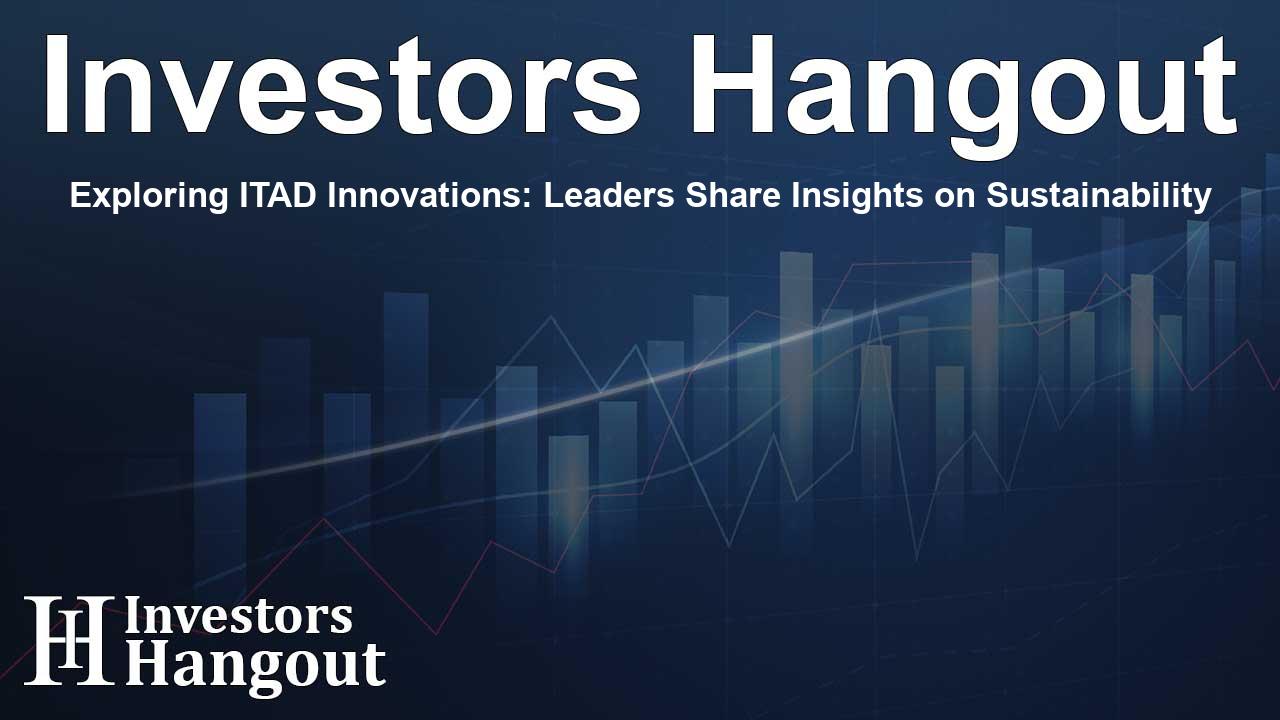Exploring ITAD Innovations: Leaders Share Insights on Sustainability

Recent Innovations in IT Asset Disposition
In a recent conversation among ITAD industry leaders, a wealth of knowledge emerged about the future of IT Asset Disposition (ITAD). John Shegerian, the Chairman and CEO of ERI, together with key figures from Sage Sustainable Electronics and Cascade Asset Management, unraveled insights during a roundtable event focused on ITAD. This engaging dialogue offered a strategic viewpoint on current trends and pressing challenges faced by businesses in their asset management strategies.
The Role of ITAD in Today's Business Environment
The discussions centered on the critical importance of ITAD in today’s corporate landscape. ITAD is not merely about recycling or disposing of electronics; it is deeply intertwined with sustainability and corporate responsibility. Experts shared how implementing responsible ITAD practices is essential for protecting data and enhancing environmental sustainability.
Understanding ITAD's Significance
The event titled Understanding ITAD: A Roundtable Discussion with Three CEOs, aimed to provide insights into the key foundations of ITAD. Industry professionals from enterprise IT Asset Management (ITAM), procurement, finance, and environmental, social, and governance (ESG) fields gained understanding of how ITAD contributes significantly to corporate strategies.
Key Topics Discussed
The conversation was enriched with topics covering ESG compliance, data security, cost optimization, and the risks that are emerging in modern technology landscapes. This variety allowed participants to grasp the multifaceted approach businesses must take to optimize their ITAD strategies.
Insights from Industry Leaders
David Daoud, a renowned industry analyst and leader, moderated the roundtable and highlighted how ITAD supports businesses in achieving their sustainability goals. He remarked on the evolution of ITAD and its integral part within the circular economy, where sustainability and technology advancements, like artificial intelligence, are becoming paramount.
Moving Towards a Sustainable Future
As the conversation unfolded, Shegerian emphasized the collective responsibility of leaders in tackling pressing issues related to ITAD. Sharing knowledge and strategies can create profound impacts not just on business practices but on environmental conservation. He pointed out that “communication and education are vital for creating collaborative solutions that benefit the planet and protect digital privacy.”
Challenges in ITAD Practices
With a focus on the potential pitfalls in ITAD, Houghton noted that any oversight could lead to significant consequences for organizations. This reality underscores the necessity for trustworthy partners in the ITAD space. It is crucial that organizations work with reputable service providers to mitigate risks associated with data security and electronic waste.
The Importance of Continuous Learning
Peters-Michaud reflected on the added value of such discussions, stating that each interaction with fellow leaders enriches his understanding of the ITAD landscape. This sentiment resonated throughout the event as participants acknowledged the necessity of staying updated with industry trends and best practices, particularly concerning the intersection of business operations and environmental stewardship.
The Bigger Picture: ITAD and Circular Economy
This roundtable serves as a foundation for ongoing conversations about how businesses can implement ITAD practices effectively. With the collective goal of contributing positively to both the economy and the environment, the emphasis is laid on sustainable methods of IT asset management. The hope is to foster innovation while maintaining a commitment to social responsibility.
Conclusion
The roundtable closed with a commitment from all attendees to continue advancing the conversation around ITAD and sustainability. With experts like those from ERI and their counterparts, the future of IT Asset Disposition looks promising, emphasizing the potential for growth and responsibility within this vital industry.
Frequently Asked Questions
What is the primary focus of the ITAD roundtable discussions?
The primary focus is to discuss the trends, challenges, and best practices in IT Asset Disposition, emphasizing sustainability and responsible asset management.
Who participated in the ITAD roundtable?
The roundtable featured John Shegerian from ERI, Bob Houghton from Sage Sustainable Electronics, and Neil Peters-Michaud from Cascade Asset Management.
Why is ITAD important for businesses?
ITAD is crucial for businesses as it helps manage electronic waste responsibly, protects sensitive data, and enhances sustainability initiatives.
What are the challenges faced in the ITAD industry?
Challenges include ensuring data security during the disposal process and finding trustworthy service providers to handle ITAD solutions effectively.
How can organizations stay updated on ITAD practices?
Organizations can stay informed by participating in industry roundtables, attending seminars, and following thought leaders in the ITAD field.
About The Author
Contact Evelyn Baker privately here. Or send an email with ATTN: Evelyn Baker as the subject to contact@investorshangout.com.
About Investors Hangout
Investors Hangout is a leading online stock forum for financial discussion and learning, offering a wide range of free tools and resources. It draws in traders of all levels, who exchange market knowledge, investigate trading tactics, and keep an eye on industry developments in real time. Featuring financial articles, stock message boards, quotes, charts, company profiles, and live news updates. Through cooperative learning and a wealth of informational resources, it helps users from novices creating their first portfolios to experts honing their techniques. Join Investors Hangout today: https://investorshangout.com/
The content of this article is based on factual, publicly available information and does not represent legal, financial, or investment advice. Investors Hangout does not offer financial advice, and the author is not a licensed financial advisor. Consult a qualified advisor before making any financial or investment decisions based on this article. This article should not be considered advice to purchase, sell, or hold any securities or other investments. If any of the material provided here is inaccurate, please contact us for corrections.
